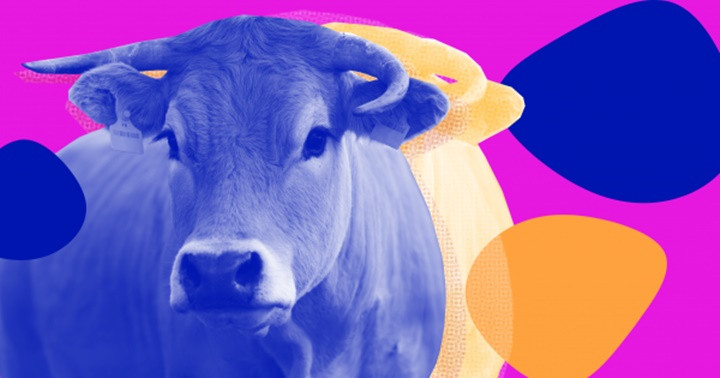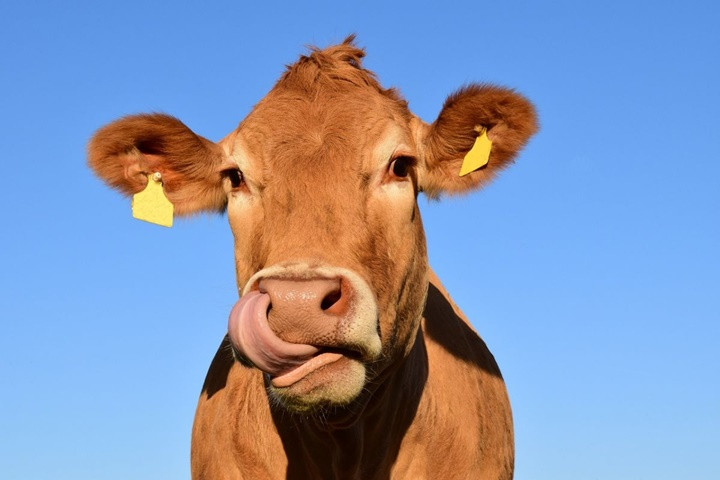'Hack' intestinal bacteria of cows can bring more meat and reduce pollution
Interfering with a cow's intestinal bacteria can help animals produce more meat and cause less pollution.
According to Futurism, humans are not the only animals with many bacteria active in the intestinal tract. Many species also possess diverse bacterial standards in the gut and are an integral part of the digestive process. In cattle, it is important for the ability to digest foods that are high in fiber - but these bacteria also produce methane, a gas that causes it. However, scientists think they can influence the cow intestines to help the animal produce more meat, while waste will contain less methane.

Changing the microorganisms in an animal's gut is not easy.
The regulation of beef gut microorganisms brings many benefits and benefits to the meat production industry. Reducing emissions of methane also greatly affects the environment because it is a powerful greenhouse gas.
However, changing the microorganisms in an intestinal animal is not easy. For example, in humans, if we want to change the bacteria in the gut, we must first understand the bacteria in the gut, how they interact with each other and their role? This is a difficult process, especially in quantity, and the different types of bacteria in different people are not the same.
To overcome these challenges, Mick Watson, an animal scientist at Edinburgh University and his team studied bacteria from 43 individual Scottish cows through their digested food samples. The team arranged the genomes of the organisms they found, discovering the important role of each species of bacteria. From this study they found the bacteria that produced methane (through DNA analysis), they also discovered a series of new digestive enzymes .
Researchers have published their findings in Nature Communications.

Adjusting the gut microorganisms brings many benefits and benefits to the meat production industry.
The intestine of the cow, or the largest stomach cavity, is called the rumen . Kristi Cammack, director of the Western River Agricultural Center of the University of South Dakota, told NPR: "Many times, in animal science, we say we are not really raising cows, we feed bacteria. rumen " . Watson and his team hope to one day use their understanding of beef gut bacteria to create a more reasonable diet for this animal.
This is not the first attempt to make cows produce less methane, but previous studies do not focus on changing the bacteria in the cow's digestive tract. However, bacteria that exist in their environment all have reasons. If some bacteria are restricted or multiplied, they can create an effect on other organisms that live in the same environment. Micro-communities that live in a delicate balance and change create an imbalance can seriously affect hosts (cows here).
- Identify herbivores, eat meat through intestinal bacteria
- Detection of 'toxic to humans' gene in cow dung
- US research creates heat-resistant cows for future food
- How the microorganisms in the gut 'hack' control your genome
- Application of science and technology increases the quality of cows
- This seemingly harmless bacterium killed one third of the world's population
- The earth is being destroyed because humans eat a lot of meat
- Detecting intestinal bacteria helps to lose weight
- Climate change creates many intestinal bacteria
- Discover more types of beneficial bacteria in the intestinal tract
- Feces of newborns - abundance of bacteria!
- Reducing meat consumption contributes to environmental protection
 Why do potatoes have eyes?
Why do potatoes have eyes? 'Tragedy' the world's largest carnivorous life: Death becomes ... public toilet
'Tragedy' the world's largest carnivorous life: Death becomes ... public toilet Tomatoes were once considered 'poisonous' for 200 years
Tomatoes were once considered 'poisonous' for 200 years Detecting microscopic parasites on human face
Detecting microscopic parasites on human face